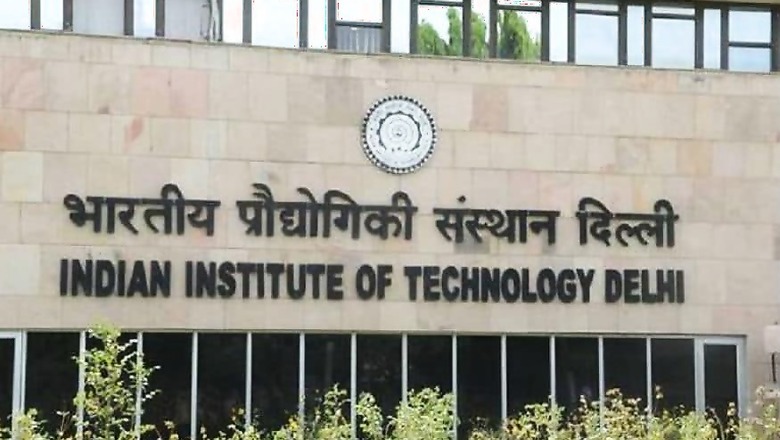
views
New Delhi: IIT-Delhi jumped 48 places in the QS global rankings for social sciences and management from 231 in 2019 to 183 in 2020. Since the institute’s inception, Social Sciences and Humanities have been a significant part in it.
Talking about the need of humanities in IITs, Richa Kumar, an Associate Professor of Sociology and Policy Studies at the Indian Institute of Technology, Delhi told News 18.com that with growing impacts of climate change and other pressing issues, the Humanities and Social Sciences (HUSS) departments will assume more importance in helping students to navigating the world, and it is critical to strengthen the faculty of Humanities across IITs.
Kumar’s research and teaching interests are in the Sociology of Agriculture, Food and Nutrition, Science and Technology Studies, and Rural and Agrarian Policy. Her current research is on the impact of monoculture farming on-farm systems, the environment and human health. She was awarded the inaugural Elizabeth Adiseshiah Memorial Award for being the ‘Outstanding social scientist of the year 2019.’
The award ‘Distinguished Contributions to Development Studies’ was for scholars below 45 years of age working in India. “My work lies at the intersection of agriculture, health and science and technology. As a social anthropologist, I study how science and technology have shaped rural, agrarian India and work on informing policy-making on these issues,” she said.
IITs and Social Sciences
All BTech engineering students need to take 16 credits from the Humanities and Social Sciences (HUSS) courses out of a total of 150 credits for their degree. “Engineers never work in a social vacuum. They need to understand the society for which they are to be designing technologies and into which their technologies will be embedded. The design of the engineering curriculum across all IITs has integrated these subjects into the engineering degree,” she added.
At the same time, humanities and social science disciplines at the IITs have grown beyond the initial mandate of teaching engineering students. “They have put together their own post-graduate and research programs that are drawing top quality social science and humanities students in India today,” she claimed.
Impact on Research
Kumar said that given the growing impacts of climate change, the explosion of technology-mediated social worlds, and many other pressing issues, “the HUSS disciplines will only become more important in helping students navigate the world. Whether those students end up becoming engineers or managers or researchers or something else, they will all need to understand the world they live in. Increasing the faculty strength in HUSS disciplines will be critical to enabling this.”
Inter-disciplinary Approach
In the World QS Ranking, Massachusetts Institute of Technology (MIT) has been on top for the eights year now which also happens to be Kumar's alma mater. While stating that she pursued her doctorate from the premium institute, she added that the foremost engineering institution in the world, MIT has 37 per cent of its faculty members from non-engineering and non-science disciplines.
MIT includes some of the best humanities and social science faculty in the world and even undergraduate students at MIT can major in HUSS disciplines. “It is the existence of this cross-fertilization across the natural sciences, engineering, and social sciences and humanities that helps MIT students (technologists and others) to work on cutting edge problems,” Kumar said.
Several HUSS faculty members in IIT Delhi have research projects in collaboration with faculty members from science and engineering disciplines. A new Masters Program in Cognitive Sciences housed in the HUSS Department is another area of interaction.
There is a conference by Prof. Naveen Thayyil, a faculty in HUSS on science, technology and society pedagogies in India. IITs have several collaborations with foreign universities where HUSS faculty members are active participants. Prof. Sarbeswar Sahoo conducts an annual Winter School with Groningen University in the Netherlands, Prof. Upasna Sharma (now at the School of Public Policy at IIT Delhi and earlier in the HUSS Dept) collaborates with the University of Queensland in Australia, these are just two examples of younger faculty members.


















Comments
0 comment